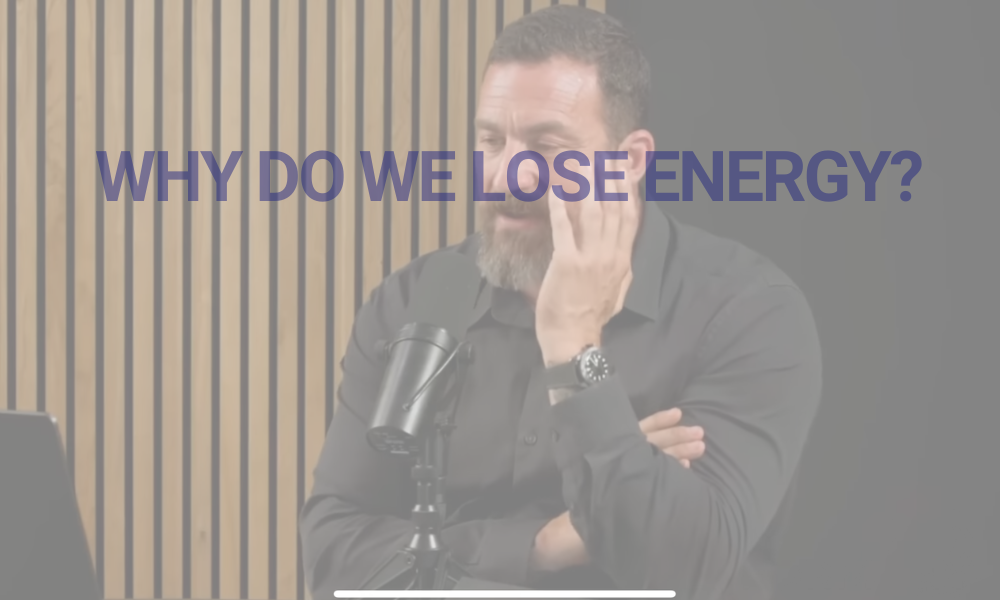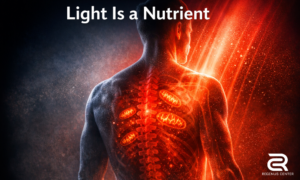Why Do We Lose Energy? The Question No One Has Fully Answered
In a recent conversation between Peter Attia, MD (longevity medicine) and Andrew Huberman, PhD (neuroscience, Stanford University), the two explored the decline of strength and power with age. Attia noted how power — explosive force output is often the first to go, even before strength or muscle mass. Huberman then asked the simple yet profound question:
“Why do we lose energy?”
And then he added:
“I don’t think anyone has really been able to answer that question.”
That statement is striking, but true. Even with decades of research in physiology, neuroscience, and aging, there’s still no single, unified explanation for why humans “run out of energy.”
At Regenus Center, this question has guided everything we do. After more than 40,000 recovery sessions, we believe the most complete answer is found at the intersection of biology, bioenergetics, and lifestyle.
What Science Tells Us About Energy Decline
1. Mitochondrial Function
Mitochondria are often called the “power plants” of our cells. They convert oxygen and nutrients into adenosine triphosphate (ATP) — the usable form of energy. Research shows that mitochondrial efficiency declines with age, leading to decreased ATP production (Nicholls, 2002; López-Otín et al., Cell, 2013).
2. Circadian Rhythms
Our internal clocks govern hormone release, cell repair, and recovery. Disrupted circadian rhythms — from late nights, artificial light exposure, or irregular schedules — impair mitochondrial function and increase fatigue (Bass & Lazar, Science, 2016).
3. Stress and Adaptive Energy
Hans Selye, the “father of modern stress science,” introduced the concept of adaptive energy — the reserve that allows organisms to respond to stress. Chronic stress drains this reserve, leaving us with less energy for everyday performance (Selye, The Stress of Life, 1956).
4. Cellular Redox Balance
Energy production depends on maintaining proper redox signaling (balance of free radicals and antioxidants). When that balance tips toward oxidative stress, mitochondrial damage accumulates, reducing energy output (Halliwell & Gutteridge, Free Radicals in Biology and Medicine, 2015).
Beyond Physiology: The Energy Debt Problem
While these mechanisms explain pieces of the puzzle, they don’t explain the whole. The truth is: we don’t simply “lose” energy with age — we overspend it.
Modern life places extraordinary demands on the body and brain, while leaving little time for deep recovery. This creates what we call chronic energy debt: spending more energy each day than the body can regenerate. Over time, this leads to:
-
Persistent fatigue
-
Cognitive fog
-
Burnout
-
Accelerated aging and increased disease risk
Energy debt isn’t a disease — it’s a hidden variable that undermines performance, health, and longevity across the board.
The Role of Advanced Recovery
This is why Regenus exists. Traditional health advice — “sleep more, eat better, exercise” — is necessary but not sufficient. In today’s 24/7 world, natural recovery rhythms aren’t enough. We need to accelerate recovery at the cellular level.
At Regenus, we use technologies that have been shown to improve mitochondrial function, enhance oxygen delivery, and support cellular repair:
-
Photobiomodulation (red and near-infrared light therapy) — improves mitochondrial ATP production and reduces oxidative stress (Hamblin, BBA Clinical, 2016).
-
Oxygen-based therapies — increase tissue oxygenation, supporting both cellular energy and repair (Eftedal & Franks, Undersea Hyperb Med, 2013).
-
The BioVitality Protocol™ — Regenus’ structured approach to combining recovery modalities for maximum energy restoration.
A Lifestyle That Puts Energy First
Ultimately, technology is only part of the equation. The bigger shift is lifestyle.
A Performance Lifestyle® — the system we help clients adopt — is about organizing your life around energy first. It’s not just about mindset or discipline. It’s about aligning sleep, nutrition, movement, recovery, and purpose with the reality that energy drives everything.
Most of us aren’t used to putting energy first. But once you do, it’s revealing. Because it shows what you really are at the most fundamental level: not just a story, not just a brain, not just a body — but energy.
The Takeaway
The question “Why do we lose energy?” doesn’t have a single mechanistic answer, which is why even leading scientists still wrestle with it. But when you connect the dots — biology, stress, circadian rhythms, and lifestyle — a clearer picture emerges.
We lose energy because we overspend it and fail to recover. The solution is to restore balance through:
-
Supporting mitochondrial and cellular function, starting with Photobiomodulation, AKA red light therapy.
-
Reducing stress and energy debt
That’s the work we do at Regenus Center.
Because without energy, nothing works. With it, everything changes.






